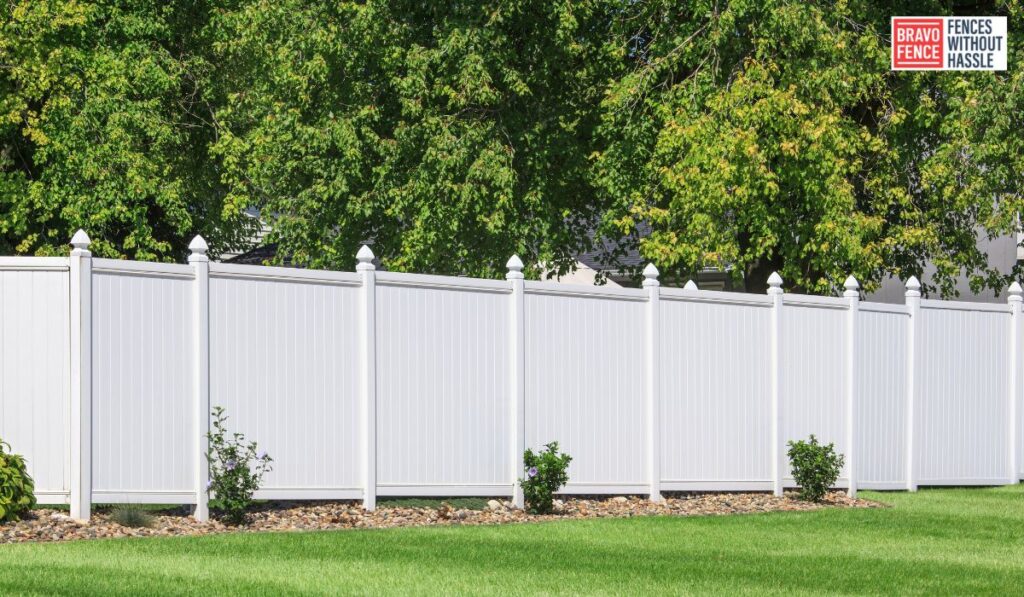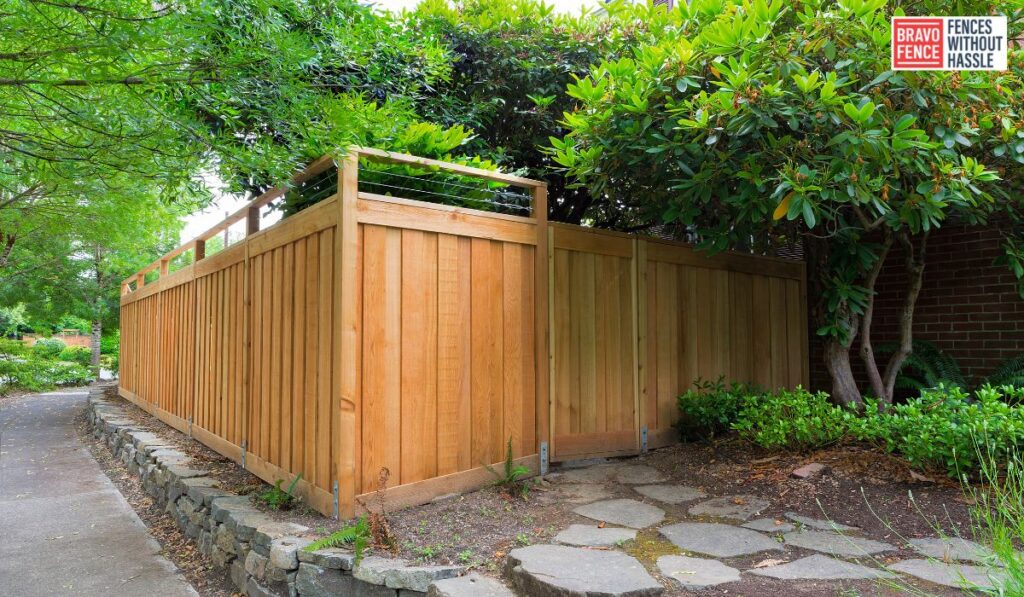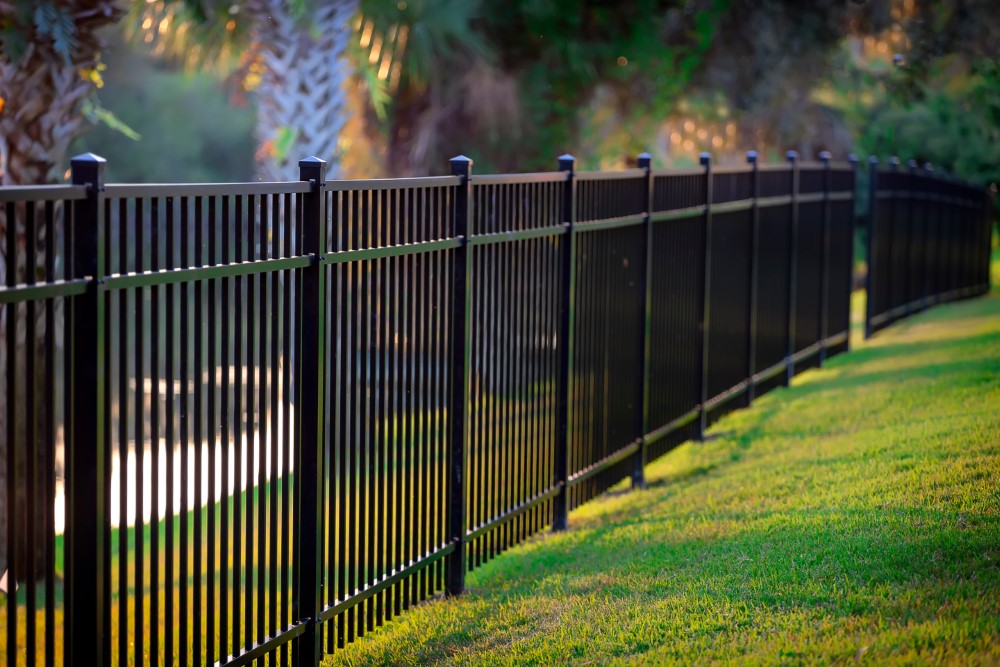
Three Good Questions to Ask Before Building a Privacy Fence
With the explosion of suburbs in the 1950s, America saw a new type of residential layout.
Houses were lined up next to each other, street after street, with very little to differentiate one from the next.
Backyards became a standard feature of these suburban homes, and along with backyards came wooden privacy fences to mark off property boundaries and keep out prying eyes.
But before building a privacy fence on your property, there are some questions you need to ask.
What Laws Govern Building a Privacy Fence?
Depending on where you live, you may have several layers of laws and ordinances that regulate your wooden privacy fence.
Many states have laws that govern the maximum height of a privacy fence.
Laws may also address how far a fence has to be from a road or sidewalk and other details of fence placement and construction.
In Georgia, there are very few state-wide laws that govern fences.
But that doesn’t mean anything goes.
On the contrary, the lack of uniform state laws means that fences are governed by a patchwork of overlapping jurisdictions.
Depending on where you live, your fence may be subject to regulations from your county, city, or homeowners association.
Before you can start planning your privacy fence, make sure that you are aware of any rules or ordinances that apply to it.
If you build a fence that doesn’t follow the law, you may be required to take it down at your own expense.
You could also be subject to fines or a lien on your home from an HOA.
In addition to researching the pertinent laws and regulations, you need to obtain the right permit.
Many cities and counties require a building permit to erect a fence.
Some have specific permits just for fences. Your local fence company should be able to help you with the permitting process.
Boundary Fences
If you are building a boundary fence around the perimeter of your property, you may run into additional legal considerations.
Before you can build a boundary fence, your county or city may require approval from a surveyor.
At the very least, you should check your deed, assessor’s office, or the surveyor’s paper that you received when you bought your home.

Any of those should tell you where your property boundary is.
Although Georgia has no state laws specifically governing fences, it does have laws about property boundaries and encroachment.
A fence that is located precisely on the border of your property is considered the joint property of both neighbors.
Both neighbors are equally responsible for maintenance, and neither may make changes to the fence without mutual agreement.
So if you plan to take down, modify, or replace a boundary fence, your very first step should be talking to your neighbor.
Finally, if you really hate your neighbor and you want to erect a ten-foot fence between you and them, you may need to think again. While Georgia law doesn’t regulate fence height, there is legal precedent— see Hornsby v. Smith (1941)—regarding spite fences.
If your neighbor can show that the fence doesn’t serve any purpose other than annoying them, you may be ordered to take it down.
How High Will Your Fence Be?
We’ve already established that many features of a privacy fence are determined by various governing bodies.
Your county or municipality likely has some rules about fence height.
If you like in a community with a homeowners association, there may be very specific rules about fences in order to maintain a uniform appearance throughout the neighborhood.
HOA regulations may regulate height, material, and color, among other features.
One of the primary goals of a homeowners association is to keep up housing prices and the value of homes within their jurisdiction.
If a house sticks out too much, or if it looks unattractive, it could negatively affect the value of the houses around it.
So HOAs maintain strict rules about the appearance of homes and property, including fences.
Applying for a Variance
If you have a good reason to make your fence higher than what is allowed, there are a few options.
If you are only bound by a county or municipality, you could apply for a variance.
A variance is a request for an exemption based on a demonstrated need.
For instance, if your home backs up onto a wooded area and deer are eating your plants, you might request an eight-foot deer fence.
Or, if your property is overlooked by other property at a higher elevation, you may need more height to maintain your privacy.
These are all legitimate reasons to request a variance.
However, requesting a variance takes more time than just applying for a permit, even if the variance is granted. So be prepared to wait longer before you can begin work.
If you live in an area governed by an HOA, you may have more trouble getting an exception.
Unlike cities, HOAs are often concerned with uniformity, so the extent of your exemption could be very limited.
However, it is critical to know your HOA codes and stick to them.
HOAs may be frustrating at times, but most are set up with strong enforcement capabilities.
An HOA can typically fine you or even put a lien on your home if you fail to comply.
What Is the Plan for Getting In and Out of the Fenced Area?
This may seem obvious once you hear it, but many homeowners don’t give it much thought until we point it out.
When planning your fence, you need to take into account how you will get in and out of your fenced area.
In some rare cases, a privacy fence will surround a backyard with no gates whatsoever.
Access to the fenced-in area is exclusively through the home.
But setting up a backyard privacy fence that way can be very inconvenient, and we suggest that most fences have at least one gate that allows you to exit the yard without going through the house.
When you plan the location of your gates, make sure to consider how you will be using your space.
If you are using the gates for access on foot, a standard three-foot-wide gate should suffice.
Three feet is adequate for most people to get in and out, as well as small to medium-sized items like trash bins, push mowers, etc.
If you have larger items that need access in and out—for example, a ride-on mower, a vehicle, etc.—consider a wider gate.
Double gates are useful when you need a wider opening.
If you may occasionally need to bring extra-large items or equipment into your fenced-in area, consider making part of your fence semi-removable.
Ask your builder about ways to attach a section of fencing so that it can be removed and then put back up when necessary.
Obviously, this is not something you would want to do every day.
But this might be relevant if you plan on building a swimming pool or doing extensive landscaping work that requires heavy machinery.
Ask Us Your Questions About Building a Privacy Fence
These are a few questions you might want to ask before you begin building a privacy fence.
But we know that homeowners have other questions, too.
We love questions, and we’re happy to help homeowners learn more about their options and requirements when building a privacy fence.
If you are considering putting up a fence and you have questions, don’t hesitate to contact Bravo Fence Company.
We’re here to help!
Conclusion:
In the era of suburban expansion in the 1950s, wooden privacy fences emerged as essential features of backyard spaces in American homes, providing boundaries and seclusion in tightly-packed neighborhoods.
However, erecting a wooden privacy fence involves more than simply choosing the design and materials.
There are legal considerations, such as local laws and regulations, as well as factors like fence height, access points, and homeowners association guidelines.
Prior to embarking on the construction of a privacy fence, a comprehensive understanding of these facets is crucial to ensure a successful and hassle-free project.
FAQs:
What laws govern building a privacy fence?
The regulations for building a privacy fence vary based on your location. State, county, city laws, and even homeowners associations can dictate aspects like fence height, placement, and construction details.
How do boundary fences differ in legal considerations?
Boundary fences often require approval from surveyors and respect property boundaries. If a fence is placed exactly on the property border, both neighbors share responsibility for it.
Can I build a spite fence to annoy my neighbor?

While fence height isn’t typically regulated in Georgia, legal precedent exists against spite fences. If a fence’s sole purpose is annoyance, you might be compelled to remove it.
What is the importance of fence height?
Fence height matters due to local regulations, community uniformity, and the need for privacy. Different governing bodies, like municipalities or HOAs, may impose height restrictions.
How can I exceed the allowed fence height?
Applying for a variance is an option, particularly if you have valid reasons, like privacy concerns or specific needs. However, it can be a time-consuming process.
How do homeowners associations (HOAs) affect fence regulations?
HOAs often maintain strict guidelines to ensure uniformity in the neighborhood’s appearance. Non-compliance with HOA rules can result in fines or property liens.
Why is planning for access points important?
Incorporating gates into your fence design is crucial for convenient entry and exit from the fenced area. Gate size depends on pedestrian or vehicle access needs.
What gate width is suitable for pedestrian access?
A standard three-foot-wide gate usually suffices for pedestrian access and smaller items like trash bins or lawn mowers.
When should I consider wider gates or double gates?
Wider gates or double gates are beneficial when you need to accommodate larger items, such as vehicles or heavy equipment.
How can I plan for large item access in a fenced area?
Consider creating a semi-removable section of the fence to accommodate occasional entry of bulky items or machinery.
Tags: Complete Guide to Access Points And Gates, Everything You Need to Know About Building A Privacy Fence Questions, Everything You Need to Know About Homeowners Association Guidelines, Everything You Need to Know About Suburban Homes, Explore Helpful Resources on Backyards And Privacy, Explore Helpful Resources on Fence Height Regulations, Explore Helpful Resources on Property Boundaries, Explore Helpful Resources on Residential Layout, Inspiration and Tips on Local Laws And Regulations, Inspiration and Tips on Privacy And Seclusion, Top Ideas and Insights About Common Fences
